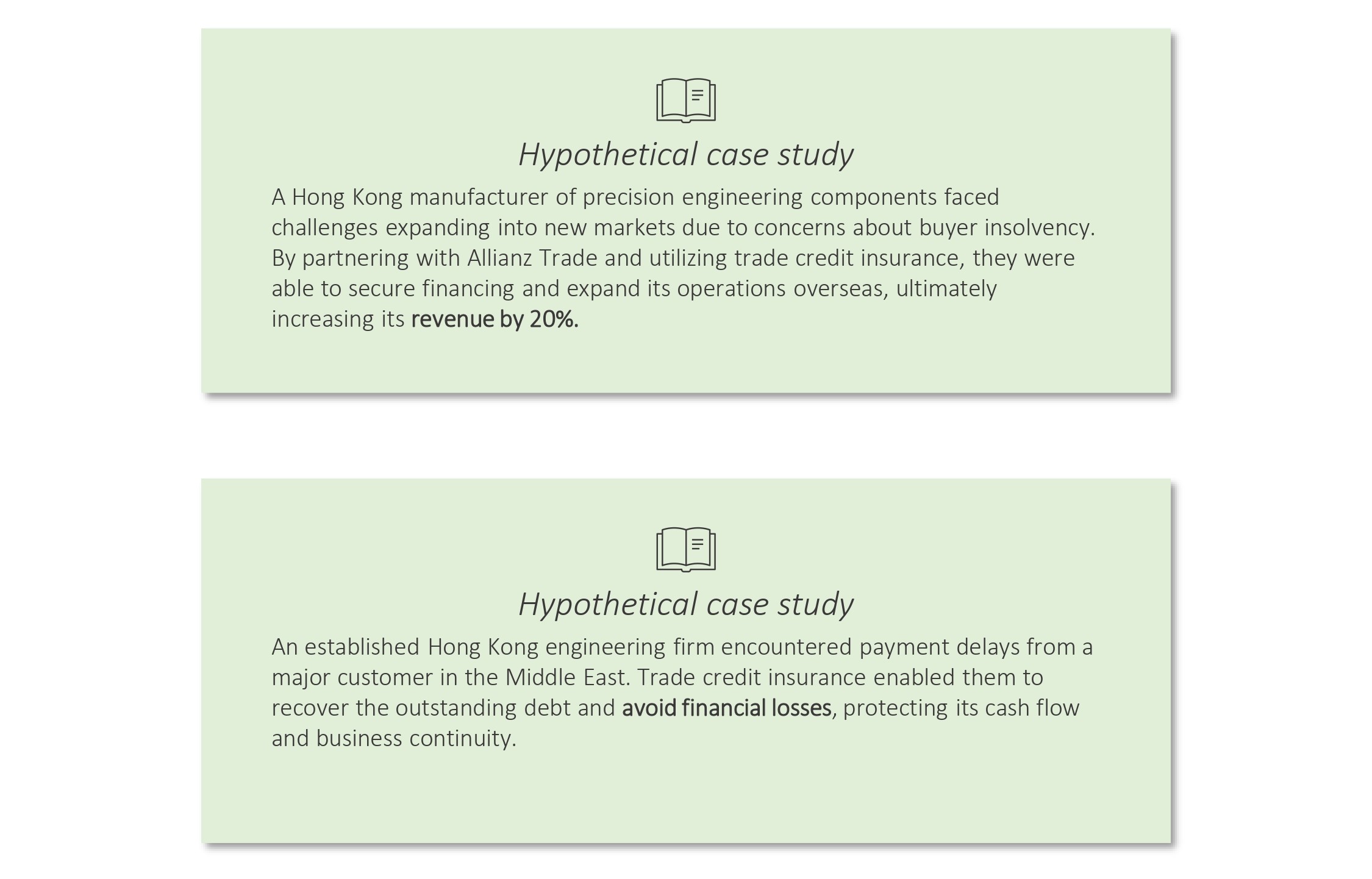
Understanding Trade Risk: Factors, Impacts, and Management Strategies
What is Trade Risk?
Trade risk refers to the potential for financial loss or negative consequences arising from fluctuations in the value of goods or services traded between different countries.
For businesses involved in international trade, trade risk is a critical consideration as it can impact their profitability and financial stability. Factors such as changes in exchange rates, political instability, regulatory changes, and natural disasters can all contribute to trade risk.
Therefore, businesses must manage these risks effectively to minimize their potential impact on their operations. Failure to do so could result in significant financial losses, damage to the business's reputation, and other negative outcomes.
Key Factors Contributing to Trade Risk
There are several primary factors that can contribute to trade risk, including:
Changes in exchange rates: Fluctuations in currency exchange rates can affect the value of goods and services traded between countries. For example, if a company based in the United States exports goods to Japan and the yen strengthens against the US dollar, the US company will receive fewer dollars for its goods, resulting in lower revenue and profitability.
Political instability: Political instability, such as civil unrest, terrorism, or changes in government, can disrupt trade and investment. Political instability can make it challenging for businesses to operate in affected countries, and it can lead to supply chain disruptions, which can result in financial losses.
Regulatory changes: Changes in regulations, such as the introduction of new tariffs or trade restrictions, can significantly impact trade. These changes can make it more challenging for businesses to access foreign markets or increase the costs of doing business in those markets.
Natural disasters: Natural disasters, such as earthquakes, hurricanes, or floods, can disrupt supply chains, damage infrastructure, and impact transportation networks. These disruptions can cause delays in the delivery of goods or increase the costs of transportation, resulting in trade risk.
Understanding the Business Impact of Trade Risk
Trade risk can have a significant impact on the profitability and financial stability of businesses involved in international trade in several ways:
Reduced revenue: Fluctuations in exchange rates can make it more expensive for businesses to import or export goods, which can lead to lower revenue. This can be particularly problematic for businesses that have fixed contracts with their suppliers or customers, as they may not be able to pass on increased costs to their customers.
Increased costs: Trade risk can increase the costs of doing business by causing supply chain disruptions, transportation delays, or increased tariffs or taxes. These increased costs can erode profitability and impact financial stability.
Reputation damage: Trade risk can damage a business's reputation if it results in delays or disruptions to the delivery of goods or services. This can lead to a loss of customers and market share, further impacting profitability.
Uncertainty: Trade risk can create uncertainty for businesses, making it challenging to plan for the future and make strategic investments. This uncertainty can make it challenging to secure financing or attract investors, further impacting financial stability.
Overall, trade risk can have a significant impact on the profitability and financial stability of businesses involved in international trade. Effective management of trade risk is critical for businesses to ensure they can continue to operate successfully in the global marketplace.

Addressing the Challenge of Overdue Invoices in Trade
A significant aspect of trade risk that businesses frequently encounter is dealing with overdue invoices. This problem is often visualized as an ever-ticking clock, symbolizing the growing urgency and financial strain that delayed payments can cause. Overdue invoices not only disrupt cash flow but also contribute to the broader trade risks businesses face. This is particularly true in international trade scenarios, where different countries may have varying payment practices and legal frameworks. Mitigating the impact of overdue invoices requires robust strategies, including the adoption of trade credit insurance products that provide coverage against this specific risk, ensuring that businesses can maintain their financial stability despite these challenges.
Effective Strategies for Trade Risk Management
There are several strategies that businesses can use to manage trade risk effectively. Some of these strategies include:
Hedging: Hedging involves taking positions in the financial markets that offset the potential losses from adverse movements in exchange rates or commodity prices. For example, a business could purchase currency options that would provide a payout if the value of a particular currency falls below a specified level.
Diversification of suppliers and customers: By diversifying their supply chains and customer bases, businesses can spread their risk across multiple markets and reduce their reliance on any single supplier or customer. This approach can help to mitigate the impact of disruptions in specific markets or supply chains.
Monitoring of global economic and political trends: Businesses can monitor global economic and political trends to identify potential risks and adjust their operations accordingly. This could involve monitoring exchange rates, commodity prices, regulatory changes, or political developments in key markets.
Contingency planning: Businesses can develop contingency plans to prepare for potential risks, such as natural disasters, supply chain disruptions, or political instability. These plans could include measures such as alternative sourcing options, backup supply chains, or insurance policies.
Negotiating contracts: Businesses can negotiate contracts with suppliers and customers that include provisions for managing trade risk. For example, a business could negotiate fixed exchange rates or delivery dates to reduce the impact of exchange rate fluctuations or supply chain disruptions.
Combatting Delayed Receivables for Sustainable Cash Flow
In addition to the direct strategies for managing trade risk, businesses must also focus on the broader issue of delayed receivables. Delayed payments can significantly disrupt a company's cash flow, leading to a cascade of financial challenges. To navigate this, businesses can explore invoice factoring and working capital solutions alongside trade credit insurance. These financial tools can provide immediate relief from cash flow disruptions caused by late payments, allowing businesses to maintain operational efficiency. By incorporating these solutions into their financial strategies, companies can create a more resilient framework for managing the uncertainties of international trade, ensuring a steadier and more predictable cash flow.
Concluding Thoughts on Trade Risk
In summary, trade risk refers to the potential for financial loss or negative consequences arising from fluctuations in the value of goods or services traded between different countries. Businesses involved in international trade face a range of trade risks, including changes in exchange rates, political instability, regulatory changes, and natural disasters. Failure to manage these risks effectively can lead to reduced revenue, increased costs, damage to reputation, and uncertainty.
To manage trade risk effectively, businesses can use strategies such as hedging, diversification of suppliers and customers, monitoring of global economic and political trends, contingency planning, and negotiating contracts. By implementing these strategies, businesses can reduce their exposure to trade risk and ensure their continued success in the global marketplace.
Managing trade risk is critical for businesses involved in international trade as it can impact their profitability and financial stability. Effective risk management allows businesses to navigate the complex and unpredictable global marketplace and adapt to changing circumstances. By managing trade risk effectively, businesses can seize opportunities, reduce costs, and remain competitive in the global economy.
Effective credit risk management is key to navigating the complexities of international trade. For businesses, this means not just reacting to risks as they arise but proactively managing credit exposures. Utilizing advanced risk assessment tools and optimizing payment terms strategies are essential in this regard. Additionally, implementing early warning systems can help identify potential late payments, allowing businesses to take preemptive actions. This comprehensive approach to credit risk management not only protects against immediate financial losses but also reinforces long-term trade stability. By prioritizing credit risk management, businesses can confidently engage in international trade, armed with the knowledge and strategies to mitigate potential credit-related disruptions.
Empowering Global Trade by Mitigating Trade Risk
Allianz Trade for Multinationals provides you with relevant market and economic information and trade credit insurance solutions so you can focus on your company business and operations with peace of mind.
Our team of experts bring together our local expertise and global reach for companies and financial institutions. We work with you to help you make fast, informed risk decisions that meet globally coordinated compliance standards and optimise your international trade risk management, removing trade barriers.
In addition to dedicated international risk solutions, you can rely on state-of-the-art technology to help you make informed risk management decisions and manage your policies in real-time.


